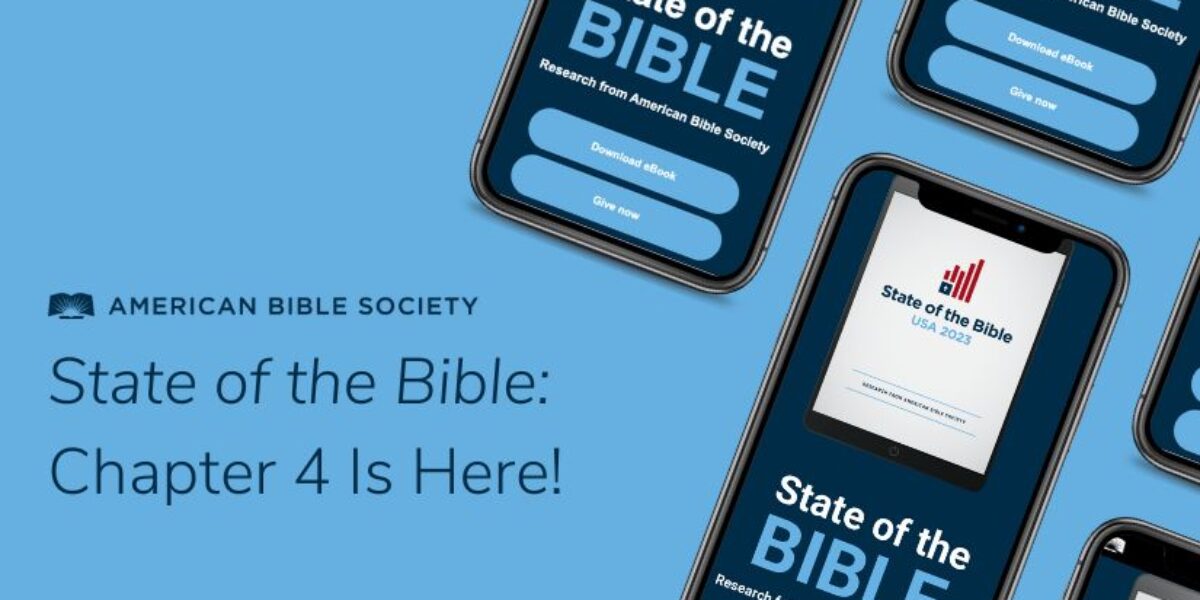American Bible Society today released the fourth chapter of their 14th annual State of the Bible report, which shares data relating to five specific ways of “loving your neighbor,” including welcoming immigrants into one’s community, befriending people of other races, befriending people of other religions, caring for those who are in prison, and advocating for those who are oppressed by society. The fourth chapter of State of the Bible 2024 is now available to download at StateoftheBible.org.
“From our research, we see that those who engage with Scripture place high importance on loving their neighbors, just as Jesus did. From advocating for the oppressed to befriending those of other races, these believers promote what we call pro-social behaviors,” said John Farquhar Plake, PhD, American Bible Society’s Chief Innovation Officer and editor-in-chief of the State of the Bible series. “But they’re not the only ones. The ‘nones’—those with no religious affiliation— also score high on their commitment to being good neighbors. Could this be a shared value? Perhaps if these unchurched ‘nones’ recognized how deeply some Christians care for their neighbors in these specific ways, they might find relationships with Christians to be more attractive and want to join in.”
The State of the Bible findings come from a nationally representative survey performed for American Bible Society by NORC at the University of Chicago, using their AmeriSpeak panel. The data came from 2,506 online interviews with American adults in all 50 states and the District of Columbia.
Key findings analyzed in Chapter 4: Love in Action
- Despite demographic differences, 74% of Scripture Engaged individuals strongly or very strongly agree on the importance of neighborliness, and none of them indicate any level of disagreement. Nearly 6 in 10 Americans agree “strongly” or “very strongly” that it is important to be a good neighbor, with Boomers+ scoring the highest of the demographics and Millennials scoring the lowest. Additionally, women are more likely than men to value neighborliness (61% to 56%) (pages 68–69).
- Those who are Bible Disengaged are more likely than Scripture Engaged individuals to agree strongly on the importance of welcoming immigrants and have similar outlooks on the issue of forging friendships across religious lines. The Scripture Engaged group leads the way by far in the lack of disagreement with any of the pro-social matters. Though there is uncertainty around executing these pro-social behaviors, Scripture Engaged individuals still understand that the Bible encourages them to participate in some way (pages 70–72).
- 42% of Scripture Engaged individuals consider it important to submit to government leaders. This indicates a significantly higher value placed on civic responsibility than the Movable Middle (15%) and Bible Disengaged (8%) groups (pages 76–78).
- “Nones” value these pro-social actions much more highly than other surveyed groups and are substantially more likely to place high importance upon welcoming immigrants, advocating for the oppressed, or befriending people of different races and religions. Only on the issue of caring for those in prison do “nones” measure evenly with everyone else, revealing that caring for incarcerated individuals is a challenge for all groups (pages 80–82).
Between August and December 2024, American Bible Society will release five new chapters in the State of the Bible story, including research on societal and cultural influences, coping with loneliness, and philanthropy.
To download the fourth chapter of State of the Bible 2024, visit StateoftheBible.org.
*For descriptions on how Scripture engagement was measured and reported, please see page 85 of the eBook available for download at StateoftheBible.org.





